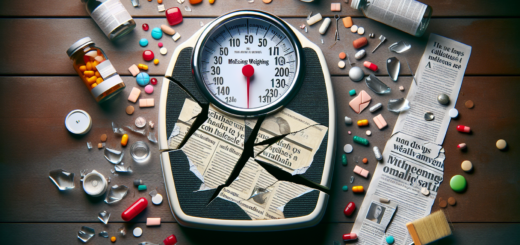Boost Your Well-being: Tips for Improving Physical Health
Have you ever felt frustrated by your physical abilities? Maybe you struggled with simple motor skills or felt like you couldn’t keep up with others in athletic performance. I know how discouraging it can be to feel limited by your physical fitness.
But here’s the good news: You have the power to make positive changes and enhance your physical health. By taking proactive steps and following these tips, you can unlock your full physical potential and experience a greater sense of well-being.
Key Takeaways:
- Improving physical health is crucial for overall well-being
- Enhancing physical abilities such as motor skills and athletic performance
- Tips and strategies for positive changes
- Unleash your physical fitness and boost your well-being
- Experience a stronger, more vibrant you
Start Moving More
Regular exercise is crucial for improving your overall physical well-being. When it comes to maintaining a healthy lifestyle, exercise is the key to success. Not only does it help you burn calories and maintain a healthy weight, but it also has numerous benefits for your cardiovascular health.
Engaging in regular exercise keeps your heart strong and healthy. It improves your cardiovascular function, allowing your heart to pump blood more efficiently. This, in turn, reduces the risk of developing heart disease and other cardiovascular conditions.
Exercise is not only beneficial for your physical health but also for your mental well-being. When you exercise, your body releases endorphins, which are natural feel-good hormones. These endorphins help elevate your mood, reduce stress, and provide a sense of overall well-being.
Furthermore, exercise enhances mental focus by improving cognitive function. It stimulates the release of neurotransmitters, such as serotonin and dopamine, which play a vital role in maintaining mental clarity and focus.
“Exercise is the key to unlocking your physical and mental potential.”
To make the most out of your exercise routine, it’s important to find activities that you enjoy. Whether it’s running, swimming, dancing, or practicing yoga, choose exercises that bring you joy and keep you motivated.
Remember, consistency is key. Aim for at least 150 minutes of moderate-intensity aerobic exercise or 75 minutes of vigorous-intensity aerobic exercise per week. Incorporating strength training exercises two or more days a week can also provide additional benefits for your physical health.
| Benefits of Exercise | Keyword |
|---|---|
| Burns calories | burn calories |
| Improves cardiovascular health | cardiovascular health |
| Reduces stress | stress relief |
| Enhances mental focus | mental focus |
So, lace up your sneakers, grab a workout buddy, and start moving more today. Your body and mind will thank you!
Get Enough Sleep
Sleep is a crucial component of both mental and physical recovery. It plays a vital role in maintaining overall well-being. By prioritizing your sleep and making a few simple adjustments, you can improve the quality of your rest and optimize your recovery process.
Establish a Regular Sleep Schedule
Creating a consistent sleep schedule can help regulate your body’s internal clock and promote better sleep quality. Try to wake up and go to bed at the same time every day, even on weekends. This routine will train your body to recognize when it’s time to sleep and wake up, resulting in more restful sleep.
Reduce Screen Time Before Bed
The blue light emitted by electronic devices like smartphones, tablets, and TVs can interfere with your body’s natural sleep-wake cycle. It’s best to avoid using screens in the hour leading up to bedtime. Instead, engage in relaxing activities such as reading a book, meditating, or taking a warm bath to prepare your mind and body for sleep.
Engage in Relaxation Techniques
Incorporating relaxation techniques into your bedtime routine can help calm your mind and prepare your body for sleep. These techniques can include deep breathing exercises, progressive muscle relaxation, guided imagery, or listening to soothing music. Find a relaxation method that works best for you and make it a part of your nightly wind-down routine.
“A good laugh and a long sleep are the best cures in the doctor’s book.” – Irish Proverb
By ensuring that you get enough sleep each night, you give your mind and body the opportunity to recover and recharge. Incorporate these strategies into your sleep routine and experience the benefits of improved mental and physical well-being.
| Benefits of Quality Sleep | Effects of Sleep Deprivation |
|---|---|
| Enhanced cognitive function | Impaired concentration and memory |
| Improved mood and emotional well-being | Increased risk of anxiety and depression |
| Optimal physical recovery | Reduced immune function |
| Increased energy levels | Greater susceptibility to weight gain |
| Supports healthy metabolism | Higher risk of cardiovascular disease |
Hydrate
Staying hydrated is essential for optimal physical health. Water plays a crucial role in maintaining various bodily processes and promoting overall well-being. From regulating body temperature to aiding digestion, water is the ultimate elixir for your body’s vitality.
One of the key benefits of drinking enough water is its role in the excretion of toxins. As you go about your day and engage in bodily processes, toxins can accumulate within your system. Drinking an adequate amount of water helps flush out these harmful substances, keeping your body clean and balanced.
Listening to your body’s signals is vital in maintaining proper hydration. Thirst acts as a natural indicator that your body needs water. When you feel thirsty, it’s a sign that you should reach for a glass of water to replenish your fluids and quench your thirst.
Rather than waiting until dehydration sets in, I make it a habit to sip on water throughout the day. This not only ensures my body stays hydrated but also helps me stay focused and energized.
“Water is the driving force of all nature.” – Leonardo da Vinci
Taking care of your body’s hydration needs doesn’t have to be monotonous or tedious. Whether it’s carrying a reusable water bottle, infusing fruits into your water for added flavor, or incorporating hydration reminders into your daily routine, find what works best for you.
Maintain a Well-Balanced, Nutritious Diet
When it comes to physical health, maintaining a well-balanced, nutritious diet is crucial. A healthy diet provides the necessary fuel for your body to function optimally and supports overall well-being. To ensure you’re getting the right nutrients, include a variety of foods in your diet, focusing on fresh vegetables, carbs, protein, fats, and fruits.
Start by incorporating fresh vegetables into your meals. These nutrient powerhouses are packed with essential vitamins, minerals, and antioxidants that promote good health. Try adding leafy greens like spinach or kale, along with colorful veggies like bell peppers and tomatoes, to your salads, stir-fries, or roasted vegetable medleys.
Carbohydrates are an important energy source for your body. Opt for healthy carbs such as sweet potatoes, quinoa, and beans, which provide sustained energy and fiber that supports digestive health. These carbohydrates are also rich in essential vitamins and minerals.
Protein plays a crucial role in building and repairing tissues, supporting muscle strength, and boosting overall immunity. Incorporate protein-rich foods like nuts, seeds, lean meats, fish, eggs, and dairy products into your meals to meet your body’s protein needs.
Healthy fats are an essential part of a balanced diet. They help absorb fat-soluble vitamins, provide long-lasting energy, and support brain health. Include sources like avocado, olive oil, nuts, and seeds in your cooking and salad dressings to add healthy fats to your meals.
Remember, a well-balanced diet is not complete without the addition of fruits. Fruits provide a wide range of vitamins, minerals, and antioxidants that promote good health and protect against chronic diseases. Incorporate a variety of fruits into your diet, and enjoy them as a snack, in smoothies, or as part of your meals.
By maintaining a well-balanced, nutritious diet, you can fuel your body with the nutrients it needs to thrive. Remember to enjoy a variety of fresh vegetables, include healthy sources of carbs and protein, add in healthy fats, and don’t forget about the sweetness and benefits of fruits.

| Nutrient | Sources |
|---|---|
| Carbohydrates | Sweet potatoes, quinoa, beans |
| Protein | Nuts, seeds, lean meats, fish, eggs, dairy products |
| Healthy Fats | Avocado, olive oil, nuts, seeds |
| Vitamins and Minerals | Fruits, vegetables |
Reduce Your Sugar Intake
When it comes to maintaining physical health, one crucial aspect to consider is your sugar intake. Consuming excessive amounts of sugar can have detrimental effects on your overall well-being. From dental issues to unhealthy weight gain and even the risk of developing diabetes, it’s important to be mindful of the sugar you consume.
To promote a healthier lifestyle, opt for organic or natural sources of sugar. Fruits, for example, contain natural sugars that provide essential nutrients and fiber, making them a healthier choice than processed sweets. Another alternative is using honey as a natural sweetener, which also offers additional health benefits.
“Limiting your sugar intake is essential for maintaining optimal physical health. By choosing organic or natural sources of sugar like fruits and honey, you can decrease the risk of dental issues, weight gain, and diabetes.”
Reducing your sugar intake can have a significant impact on your overall well-being. Not only will it help prevent dental problems, but it can also aid in weight management and reduce the risk of developing chronic conditions like diabetes.
The Health Risks of Excessive Sugar Consumption
Excessive sugar consumption can lead to various health issues, including:
- Dental Issues: Sugar provides food for harmful bacteria in the mouth, increasing the risk of cavities and tooth decay.
- Weight Gain: High sugar intake can contribute to weight gain and obesity, as sugary foods and beverages are often high in calories and lack nutritional value.
- Diabetes: Consuming too much sugar over time can lead to insulin resistance and an increased risk of developing type 2 diabetes.
By reducing your sugar intake and choosing organic or natural sources, you can take proactive steps towards maintaining your physical health.
| Health Risks | Consequences |
|---|---|
| Dental Issues | Tooth decay, cavities |
| Weight Gain | Obesity, increased risk of other health conditions |
| Diabetes | Insulin resistance, increased risk of type 2 diabetes |
Step Out Into the Sunshine
Spending time in the morning sunshine allows your body to absorb vitamin D, which is essential for a healthy immune system and strong bones. Vitamin D helps regulate the immune response, supporting the body’s defense against infections and diseases. Additionally, it plays a critical role in maintaining healthy bones by aiding in the absorption of calcium and promoting bone mineralization.
When you expose your skin to sunlight, it triggers the synthesis of vitamin D in the body. The sun’s ultraviolet B (UVB) rays interact with a form of cholesterol in the skin, converting it into an inactive form of vitamin D. This inactive form then travels to the liver and kidneys, where it undergoes further conversions to become active vitamin D.
It’s important to note that while sunshine is an excellent source of vitamin D, it’s essential to practice responsible sun exposure. Overexposure to the sun’s ultraviolet (UV) rays can increase the risk of skin damage and health concerns like skin cancer. Therefore, it is recommended to spend a moderate amount of time in the sun and protect your skin with sunscreen and appropriate clothing.

So, make it a habit to step out into the morning sunshine for a few minutes each day. Enjoy a walk, do some exercise, or simply relax outdoors. Not only will you boost your vitamin D levels, but you’ll also uplift your mood and experience the rejuvenating effects of nature.
Engage in Mentally Stimulating Activities
I believe in the power of keeping the mind active and engaged. Regularly participating in mentally stimulating activities can do wonders for your brain health and cognitive abilities. Whether it’s reading a captivating book, solving challenging puzzles, or immersing yourself in the world of video games, these activities can keep your brain alert and sharp.
Reading is not only a source of entertainment but also a great way to expand your knowledge and vocabulary. It stimulates your imagination and encourages critical thinking. Dive into a compelling novel or explore non-fiction books that pique your interest. Challenge yourself with different genres, and you’ll find yourself transported to different worlds.
Puzzles, like crosswords or Sudoku, are excellent exercises for your brain. They require logical thinking, problem-solving skills, and attention to detail. Engaging in these activities regularly can improve your memory and enhance your cognitive abilities. Plus, they provide a sense of accomplishment when you crack that final clue or complete the puzzle.
Another mentally stimulating activity that often gets a bad rap is playing video games. While excessive gaming can have negative effects, moderate and mindful gameplay can be beneficial. Certain video games require strategizing, quick decision-making, and problem-solving skills. They can improve hand-eye coordination and boost cognitive abilities.
To demonstrate the importance of mental stimulation, let’s take a look at some key benefits:
| Benefits of Mentally Stimulating Activities |
|---|
| Enhanced cognitive abilities |
| Improved memory and focus |
| Increased problem-solving skills |
| Reduced risk of cognitive decline |
Mentally stimulating activities are not only enjoyable but also have a positive impact on your brain health. They can potentially stave off cognitive decline, keeping your mind sharp as you age. So, make time for these activities in your daily routine and give your brain the mental workout it deserves.
Go for Regular Preventive Exams
Regular preventive exams are vital for maintaining your health and catching potential issues early. By prioritizing preventive exams, you can take proactive steps towards detecting and preventing diseases before they become more serious. It’s especially important to keep up with preventive exams if certain diseases run in your family, as early detection can greatly improve outcomes.
Here are the key preventive exams you should schedule regularly:
- Dentist Visits: Regular visits to the dentist play a crucial role in maintaining oral health. Get your teeth cleaned and checked for any signs of cavities, gum disease, or other oral health issues.
- Eye Exams: Having your eyes checked by an optometrist or ophthalmologist is essential for monitoring your vision and eye health. Regular eye exams can detect conditions like astigmatism, cataracts, or glaucoma.
- Physical Exams: Schedule a comprehensive physical exam with your primary care physician to assess your overall health. This includes checking your vital signs, examining your body systems, and conducting any necessary blood tests or screenings.
- Gynecological Exams: For women, regular gynecological exams are essential for reproductive health. These exams typically include a pelvic exam, Pap smear, and breast examination to screen for any abnormalities or signs of reproductive health issues.
By investing in preventive exams, you are taking control of your health and ensuring early detection of any potential problems. Don’t wait for symptoms to arise before seeking medical attention.
“Prevention is better than cure.” – Desiderius Erasmus
Preventive exams are the foundation of proactive healthcare. By prioritizing these exams, you can catch and address health concerns early, leading to better overall health and well-being. Take charge of your health by staying up-to-date with your dental visits, eye exams, physical exams, and gynecological exams.
The Importance of Preventive Exams
Preventive exams are an invaluable tool in early disease detection, allowing for timely intervention and prevention of further complications. They provide an opportunity for healthcare professionals to assess your current health status and identify any potential risk factors or underlying conditions.
Regular dental visits can prevent tooth decay and gum disease, preserving your oral health and preventing more extensive dental treatments that may be required down the line. Eye exams not only ensure optimal vision but also serve as a means of detecting eye diseases and conditions that can lead to vision impairment if left untreated.
Physical exams are comprehensive evaluations of your overall health, providing insights into factors such as blood pressure, cholesterol levels, and organ functioning. These exams can help identify potential cardiovascular conditions, metabolic disorders, or other health issues.
Gynecological exams are essential for women to monitor reproductive health, detect early signs of cervical or breast cancer, and address any concerns related to reproductive organs. Regular screenings can also identify sexually transmitted infections or hormonal imbalances.
| Exam | Frequency |
|---|---|
| Dentist Visits | Every 6 months |
| Eye Exams | Every 1-2 years |
| Physical Exams | Annually |
| Gynecological Exams | Annually or as recommended by your doctor |
Regular preventive exams empower you to take control of your health and minimize the risk of developing life-threatening conditions. Consult with your healthcare provider to determine the appropriate frequency for each exam based on your individual health needs.
Wash Your Hands
Practicing proper hand hygiene is crucial, especially in the age of COVID-19. It is one of the most effective ways to prevent the spread of harmful pathogens and protect your health. Regularly washing your hands helps remove germs and bacteria that could make you and others sick.
During this global pandemic, hand hygiene has become even more vital in preventing the transmission of COVID-19. The virus can survive on surfaces for hours, and if you touch a contaminated surface and then touch your face, you may unknowingly introduce the virus into your system.
It is recommended to wash your hands with soap and water for at least 20 seconds, making sure to cover all areas including the palms, back of hands, between fingers, and under nails. If soap and water are not readily available, you can use hand sanitizers with at least 60% alcohol content. However, it’s important to note that hand sanitizers should not be used as a substitute for handwashing when soap and water are accessible.
Remember, clean hands protect you and those around you. By practicing proper hand hygiene, you are contributing to the prevention of pathogens and helping to stop the spread of COVID-19.
When Should You Wash Your Hands?
To ensure effective hand hygiene, it’s essential to know the key moments when you should wash your hands:
- Before and after preparing food
- Before eating
- After using the restroom
- After coughing, sneezing, or blowing your nose
- After touching potentially contaminated surfaces, such as doorknobs or handrails
- After caring for someone who is sick
By adhering to these handwashing guidelines, you are actively participating in the prevention of diseases and promoting a healthier environment.
Visual Reminder
Visual reminders like the image above can serve as a cue to practice proper hand hygiene consistently throughout the day. Display it in areas where handwashing is frequently required, such as near sinks or in public restrooms.
Remember, your hands are the main point of contact with the world around you. By keeping them clean, you are taking an important step towards safeguarding your health and preventing the spread of harmful pathogens.
Conclusion
Taking steps to improve your physical well-being is essential for overall health. By incorporating these tips into your lifestyle, you can enhance your physical abilities and boost your overall well-being.
Remember to prioritize exercise, as it helps improve your physical fitness, burn calories, and provide stress relief. Engaging in regular physical activity also enhances your cardiovascular health and mental focus.
Maintaining a well-balanced, nutritious diet is crucial for physical health. Include fresh vegetables, healthy sources of carbs, protein-rich foods, and healthy fats in your meals. Don’t forget to add vitamin-packed fruits to your diet.
Additionally, ensure you get enough sleep to support your mental and physical recovery. Establish a regular sleep schedule, reduce screen time before bed, and practice relaxation techniques to improve the quality of your sleep.
Staying hydrated is also essential for optimal physical health. Listen to your body’s signals and drink water whenever you feel thirsty to support various bodily processes and help with the excretion of toxins.
Managing stress is another key aspect of improving your physical well-being. Engage in mentally stimulating activities, such as reading or solving puzzles, to keep your brain sharp. Don’t forget to go for regular preventive exams, including visits to the dentist, eye exams, and physical and gynecological exams, to detect and prevent diseases.
Embrace these tips and make them a part of your lifestyle to become a stronger, more vibrant version of yourself. Prioritize your physical well-being and take proactive steps to improve your overall health.
FAQ
How does exercise improve physical health?
Exercise helps burn calories, improves cardiovascular health, relieves stress, enhances mental focus, and releases feel-good hormones like serotonin and dopamine.
Why is sleep important for physical health?
Sleep is crucial for mental and physical recovery. Establishing a regular sleep schedule, reducing screen time before bed, and engaging in relaxation techniques can improve the quality of your sleep.
How much water should I drink for optimal physical health?
Listen to your body’s signals and drink water whenever you feel thirsty. Staying hydrated is essential for various bodily processes, including the excretion of toxins.
What should I include in a well-balanced, nutritious diet?
A healthy diet should include fresh vegetables, healthy sources of carbs like sweet potatoes and beans, protein-rich foods like nuts and eggs, and healthy fats like avocado and olive oil. Don’t forget to add vitamin-packed fruits to your diet.
Why should I limit my sugar intake?
Excessive sugar consumption can lead to dental issues, unhealthy weight gain, and diseases like diabetes. Opt for organic or natural sources of sugar, such as fruits and honey.
How does sunshine benefit physical health?
Spending time in the morning sunshine allows your body to absorb vitamin D, which is essential for a healthy immune system and strong bones.
What activities can I engage in to keep my brain sharp?
Regularly engaging in mentally stimulating activities, such as reading books, solving puzzles, or playing video games, keeps your brain alert and potentially staves off cognitive decline.
Why are regular preventive exams important?
Regular preventive exams, including visits to the dentist, eye exams, and physical and gynecological exams, are crucial for detecting and preventing diseases. Stay proactive about your health, especially if certain diseases run in your family.
How important is hand hygiene?
Practicing proper hand hygiene, especially in the age of COVID-19, is one of the most effective ways to prevent the spread of harmful pathogens. Regularly wash your hands to protect your health.
How can I improve my overall physical well-being?
Taking steps to improve your physical well-being is essential for overall health. By incorporating tips such as exercise, maintaining a balanced diet, staying hydrated, getting enough sleep, managing stress, and seeking preventive care, you can enhance your physical abilities and boost your overall well-being.

















It's great that you talked about how business insurance can provide financial protection against unexpected events and help ensure the…
I like that you mentioned how business insurance is essential for protecting your bottom line and the long-term viability of…